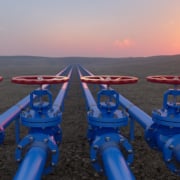FERC Issues 2022 Summer Energy Market and Reliability Assessment, Warns Extreme Weather Could Pose Operational Challenges
On May 19, 2022, the Federal Energy Regulatory Commission (FERC) staff issued its 2022 Summer Assessment for energy markets and electric reliability. The report finds that U.S. electric markets are expected to have sufficient capacity and reserves to maintain reliable operations under normal conditions but warns that higher than average temperatures are expected for the coming summer.
The 2022 Summer Assessment also notes the following:
- Demand for natural gas continues to exceed supply, with natural gas prices for summer 2022 expected to rise at major trading hubs across the U.S, with an expected increase of 3.4% above summer 2021 levels. Summer 2022 demand for natural gas is expected to increase 4.8% over summer 2021 levels.
- Wholesale electric markets will likely see higher prices for summer 2022 because of hotter temperatures, slightly increased demand, and higher natural gas prices.
- The western U.S. faces extreme drought conditions, which are expected to reduce the amount of available hydropower while increasing the likelihood of wildfires. The threat of wildfires may require deenergizing transmission assets to reduce the likelihood of electric equipment sparking fires during extreme heat and wind conditions.
- Extreme operating conditions, such as heat waves, wildfires, hurricanes, and other severe weather events, may stress grid operations, with the risks being higher across the West, Texas, and parts of the Midwest.
FERC staff presented these findings to the FERC Commissioners at FERC’s May 2022 Open Meeting, which prompted reactions by the Commissioners as to the role FERC could play to improve reliability forecasts in the face of extreme weather events through encouragement of transmission investment, supporting demand response resource participation, and revising markets rules. The ensuing discussion displayed a tension between efforts to plan for a clean energy transition and the need for investing in traditional baseload generation to ensure reliability.
The report can be found here.
This post is as of the posting date stated above. Sidley Austin LLP assumes no duty to update this post or post about any subsequent developments having a bearing on this post.


